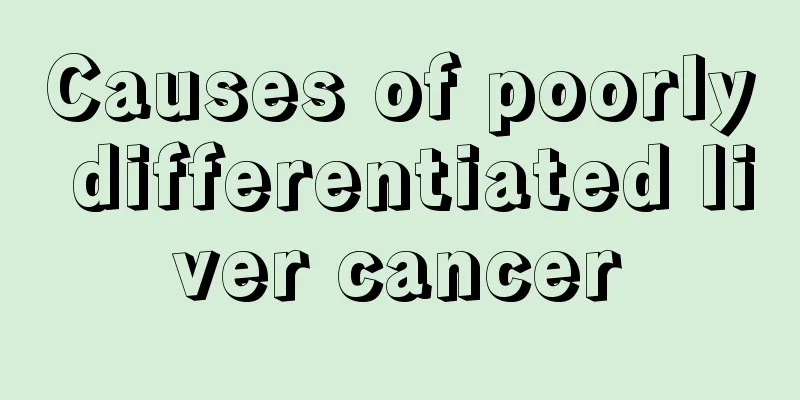What to do if you have anal bloating

|
If a patient often feels a feeling of heaviness and distension in the anus, he should pay attention to his diet and control the time he spends squatting. Because of the feeling of heaviness and distension in the anus, it can easily develop into hemorrhoids if not treated in time. At the same time, many patients who have a feeling of heaviness and distension in the anus will also clearly feel a burning sensation in the anus. At this time, it is very necessary to learn the solutions to the feeling of heaviness and swelling in the anus. What is anal swelling? Generally speaking, patients with anal prolapse often go to the toilet frequently, but they still feel heavy after defecation, so they are very painful. Some patients with anal swelling may also experience a burning sensation, which is even more uncomfortable. From the perspective of modern medicine, anal prolapse can be caused by a variety of diseases and is a symptom that cannot be ignored. Anal swelling is a warning sign of anorectal disease. Experts say that anal distension is often a complication of anorectal diseases, usually with distension and pain, no fever, no redness or swelling of the anus, normal stool characteristics, and unobstructed excretion, but a feeling that the stool is not completely discharged and frequent urge to defecate. Frequent recurrences last for days, months, years, and are difficult to treat, seriously affecting the patient's quality of life. There are many diseases that can cause anal distension clinically, mainly the following: 1. Anal sinusitis Anal sinusitis is the most common cause of anal heaviness. In addition, inflammation of the anal sinuses and anal valves is also called anal cryptitis, which can further develop into perianal abscesses. 2. Anorectal infection In particular, high-positioned abscesses above the levator ani muscles occupy space and expand at the bottom of the pelvic cavity, stimulating the surrounding nerve tissue and causing a feeling of heaviness and distension in the anus. 3. Rectal mucosal prolapse It can also be called "rectal prolapse". Rectal prolapse refers to a disease in which the mucosal layer or the entire layer of the rectum, anal canal and lower sigmoid colon prolapses outside the anus. But what we are talking about here is "rectal mucosal prolapse", in which the rectal mucosa is loose and accumulates in the rectum, but has not yet prolapsed out of the anus, which can cause a feeling of heaviness and distension in the anus and a feeling of incomplete defecation. 4. Proctitis If chronic colitis affects the rectum, there may be a feeling of anal prolapse and increased frequency of bowel movements. The disease usually lasts for a long time, with repeated attacks and varying degrees of severity. 5. Rectal cancer Rectal cancer is a hidden disease and is difficult to detect in the early stages. Patients may experience symptoms such as anal prolapse, increased frequency of bowel movements, and a feeling of incomplete bowel movements. They should be vigilant, get checked and treated promptly. 6. Male prostate disease. Tumor or prostatitis. 7. Increased intraspinal pressure caused by sacral lesions, sacral canal tumors or cysts. When a feeling of anal prolapse occurs, one cannot draw conclusions based on this symptom alone. Instead, one should go to a regular hospital in time to see a professional anorectal doctor for a careful examination, further clarify the diagnosis, and targeted treatment to achieve the best treatment effect. Let’s take a look at how to treat anal swelling. How to treat anal swelling Because patients with anal swelling are at risk of suffering from anorectal inflammation, as long as symptoms of anal swelling appear, they should seek medical attention early and go to the anorectal department of the hospital for examination, clear diagnosis, and prompt treatment to avoid worsening of the condition. Even inflammatory diseases such as anal sinusitis should be treated promptly, otherwise there is a possibility of developing more serious diseases such as anal canal inflammation, perianal swelling and anal fistula. However, it must be pointed out that if anal swelling occurs after injection, ligation, or band ligation of internal hemorrhoids, it is a transient normal reaction. As time goes by and the wound gradually heals, the anal swelling will eventually disappear naturally. |
<<: What medicine to take for flatulence
>>: Treatment of psychological trauma
Recommend
How big is the embryo at six weeks of pregnancy?
As we all know, the development of the embryo is ...
How to take care of bad spleen and stomach
We all know that the spleen and stomach need our ...
What should we pay attention to in preventing lung cancer? There are four major trends in lung cancer recently
Lung cancer is a disease that poses a serious thr...
Anti-cancer fruits, 8 kinds of fruits should be eaten regularly
More and more people are suffering from cancer. T...
Moxibustion treatment method for osteosarcoma
As we all know, osteosarcoma is difficult to cure...
Is a fracture considered a minor injury? How to treat it?
How to judge the severity of a fracture should be...
What vitamins are needed to nourish the kidneys
The kidney is a very important organ, especially ...
What color is light brown
When talking about brown, many people will immedi...
Reasons for puffy eyes in the morning, 4 reasons for you to know
I believe many people will look in the mirror fir...
Is colonoscopy for rectal cancer contagious?
Cancer is a disease that is difficult to cure com...
Is it necessary to remove the uterus for ovarian cancer?
Whether ovarian cancer requires a hysterectomy sh...
Psychological care for elderly patients with osteosarcoma
Today's clinical nursing pays special attenti...
How to lose weight? Eat eight kinds of food to lose weight without changing your complexion
Losing weight is an eternal topic for women. How ...
How is fat consumed
Choosing different types of exercise can make fat...
The difference between puffy eyelids and fleshy eyelids
People who like to wear makeup know that eye make...









